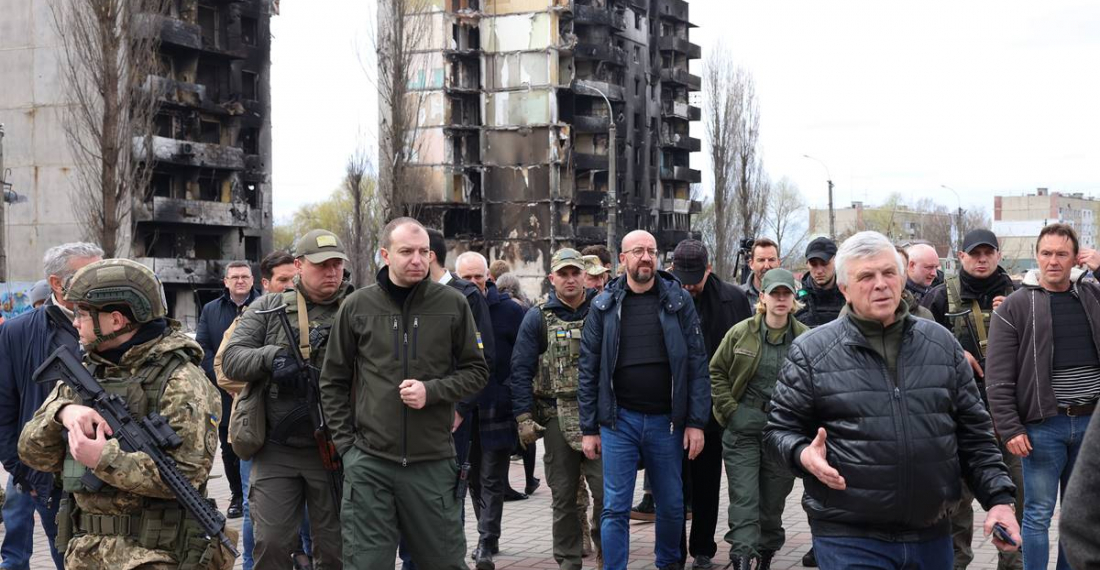Updated
European Council president Charles Michel, who is currently paying a surprise visit to the Ukrainian capital, Kyiv, met on Wednesday with Ukrainian President Volodymyr Zelensky.
Later, Zelensky tweeted:
"My valuable friend Charles Michel is in Kyiv today. Sanctions against Russia, defense and financial support for our country, and responses to a survey on compliance with EU criteria have been discussed. I thank for the meaningful meeting and solidarity with the Ukrainian people," said Zelensky.
During the course of the day, Michel also visited the town Borodyanka. He said that the situation in the town was the same as in Bucha and many other Ukrainian towns.
"History will not forget the war crimes that have been committed here. There can be no peace without justice," he said.
_________________________________________________________________________________
The president of the European Council, Charles Michel, has arrived in Kyiv on an unannounced visit,
He tweeted this morning a picture at a train station with the message,
In Kyiv today. In the heart of a free and democratic Europe







